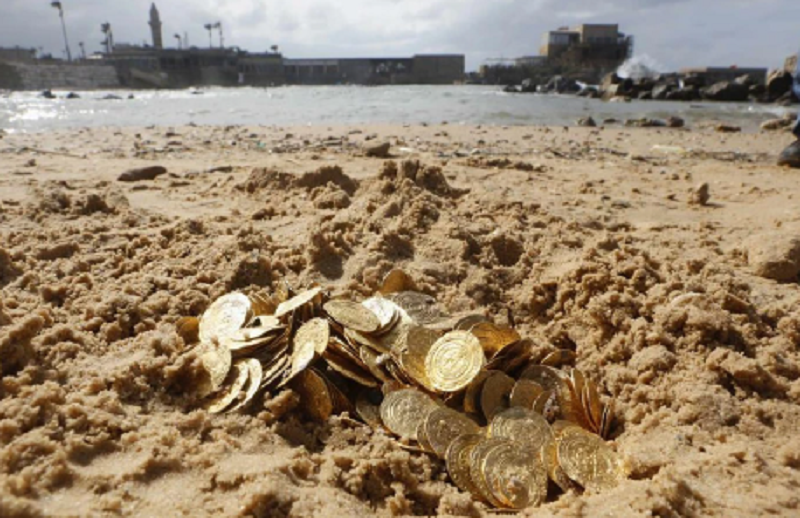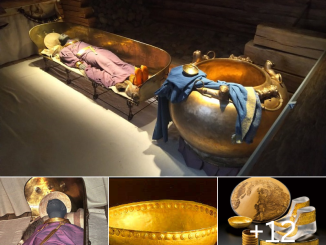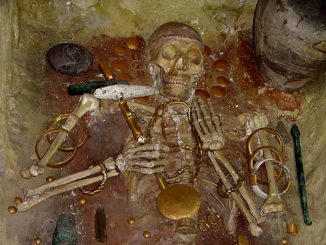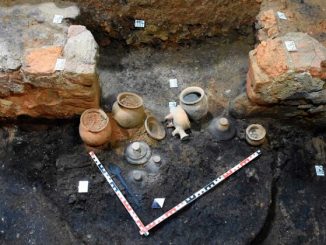Divers have just discovered a treasure off the coast of Israel, containing thousands of 1,000-year-old gold coins with Arabic inscriptions.
According to Reuters, about 2,000 gold coins dating from the 11th century, when the Fatimid Muslim dynasty dominated the Middle East, were brought up from the bottom of the sea.
This treasure came to light after recent winter storms. Archaeologists believe that it sank with the shipwreck near the port of Caesarea, located in the Eastern Mediterranean of ancient Rome.
Ancient gold coins found off the coast of Caesarea, north of Tel Aviv – Israel were displayed on February 18.
Photo: Reuters
Mr. Jacob Sharvit, of the Israel Antiquities Authority, told Reuters: “It is possible that the ship was carrying tax money to Cairo but sank in Caesarea port.” According to Mr. Sharvit, about 2 weeks ago, amateur divers discovered a lot of coins. At first they thought it was a children’s toy, but experts later found up to 1,000 coins.
The second dive on February 17 harvested a similar amount of coins. Up to now, the total number of coins found is about 2,000 coins with a weight of approximately 6 kg of gold. If calculated at current prices, the above treasure is equivalent to 240,000 USD.
All the coins have Arabic inscriptions and were minted during the reign of King Al-kim (996-1021) and his son King Al-hir (1021-1036) – both of the Fatimid dynasty.
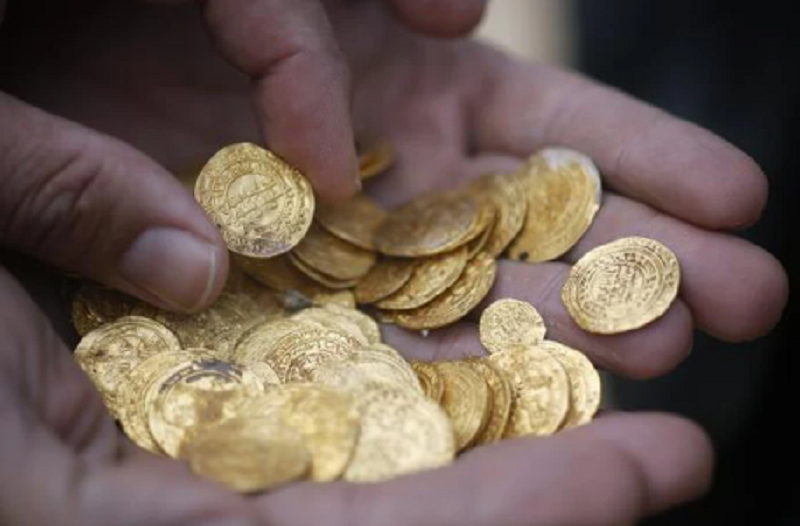
A total of about 2,000 coins were brought ashore. Photo: Reuters
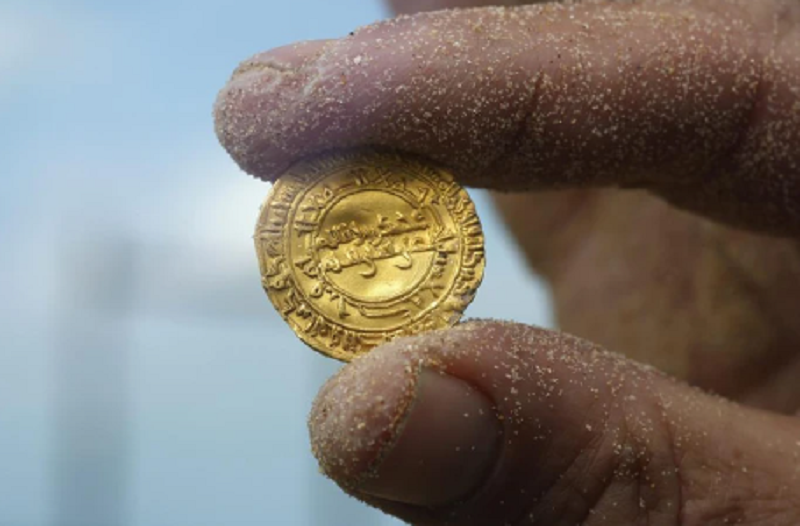
The coins are engraved with Arabic characters. Photo: Reuters
The historical value of the treasure is much greater, thereby contributing to revealing the Fatimid dynasty. According to Mr. Sharvit, the above discovery proves that Caesarea port was once a wealthy area. “The Fatimid were the first Muslims to have a navy and they traded with all the cities on the Mediterranean coast. They traded with both the Romans and the Christians even though they also fought wars at the same time” – he said.
Originating in North Africa, the wealth of the Fatimid dynasty is legendary. The Israeli Antiquities Authority believes that this dynasty once stored up to 12 million gold dinars in warehouses in Cairo.
See more
